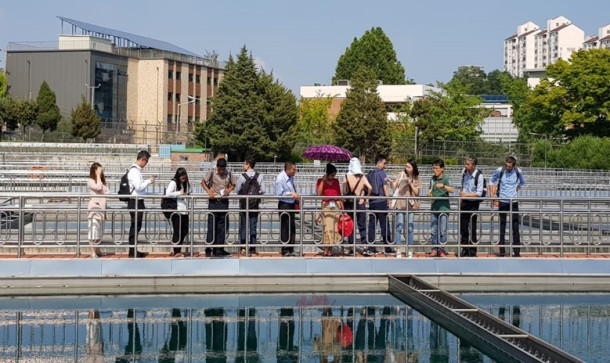
Sustainable water management: key for citizen’s wellbeing
To face the challenges regarding water management, it is crucial to share responsibilities across different levels of government
Demographic trends and climate change are some of the main factors affecting access and quality of water in our metropolises. Clean and accessible water is an essential part of the world where we want to live. Therefore, our cities should manage water quality from their sources by applying scientific pollution control and measurement methods to develop resilient and sustainable urban water infrastructure. This requires creating public policies within a context of multi-level governance, which was the basis for the Sustainable Water Management Training Course that took place in Seoul from 23 to 30 June.
Hosted by the headquarters of MITI, the Seoul Human Resource Development Center, the event was attended by five representatives from three of our members (Shanghai, Jakarta, and Bangkok), and by representatives from five other cities. In total, 12 participants joined the program and shared their city policies, as well as challenges and concerns in the field of water management. In addition, attendees learned first-hand about policies that Seoul implemented in this field and had the chance to visit Seoul Waterworks Bureau, Seonam Sewage Treatment Plant, and Seoul Water Institute.


